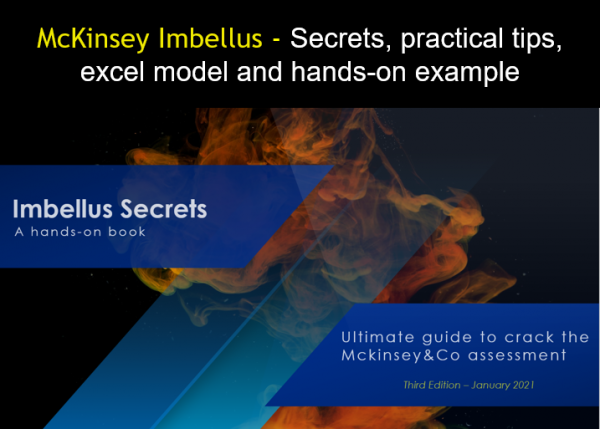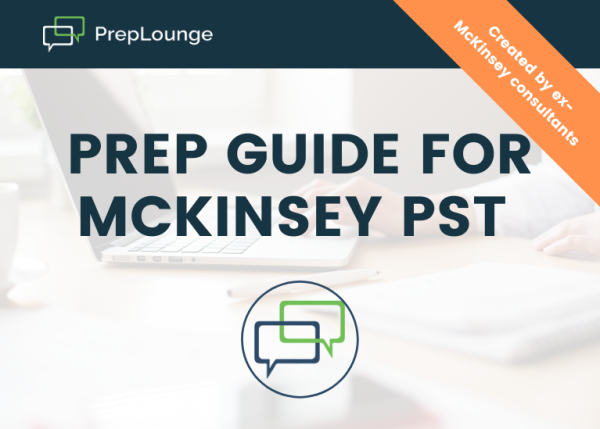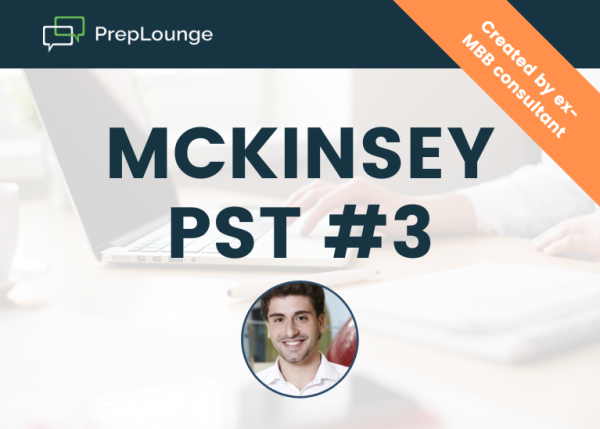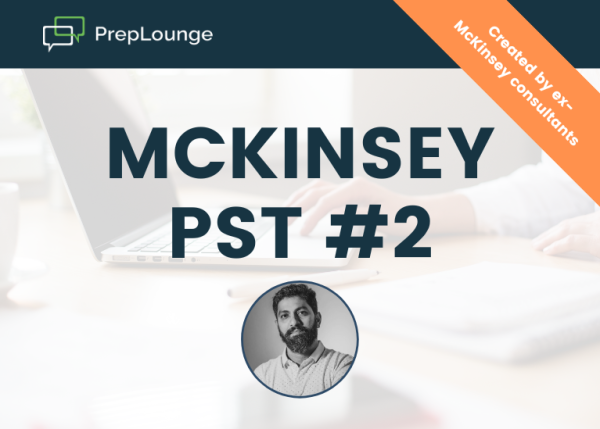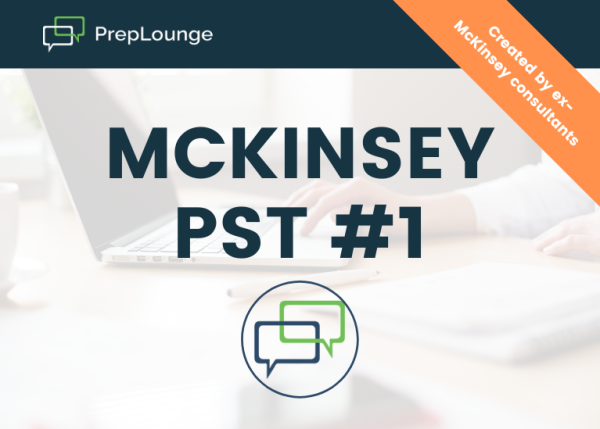Hi,
Congrats on making it to the final round at McK! Quite an achievement already. With regard to your questions, please find here some elements to put you on your way:
- What really changes now compared with the first round? Is it the intensity/complexity of the cases, is it more invoved PEI, etc.?
The cases tend to change a little bit in the sense that they become a little less structured. Principals and partners interviewing for the last round have often more experience in interviewing that EMs / managers during the first round, so they stick a little bit less to a scripted case. The cases can also become a little more conversational. I don’t think this changes the preparation all that much, but you have to get comfortable to receive cases that are a little less conventional. I got one case in the last round at McKinsey that was “Where do you expect health care in Europe to be 10 to 20 years from now”. So it become more a conversation than a case. Now this might not apply to you, but the message is be a little bit more expecting of the unexpected. (ps. This doesn’t require practical knowledge of an industry or special preparation… They still evaluate your thinking process / answer structure / … more than the actual content). Actually, the case and fit blend a bit more together into one hybrid.
- Will the notes from my previous performances be shared with my interviewers for final round?
Often you receive a call of one of the first round interviewers with a summary of the feedback that came out of the first round interviews. If this doesn’t come through, don’t hesitate to contact HR or of the interviewers with a polite email requested feedback for preparing your decisive round. It also shows investment in the process and a willingness to improve!
- In other words, will they try to test me on the specific feedback points that I received to see if I'm showing improvement on those points?
The answer is – as often in consulting – “ it depends”. If there was a particular soft spot(s) during the first round interview and you receive explicit feedback on it (e.g. weak maths, structure, etc.) there might be some more focus on this. If they look for confirmation on a point of doubt, they will pay attention. Alternatively, if the interviews were generally strong, and there were no obvious weaknesses, the interviews will be a bit more balanced and nothing in particular will be tested.
- Any other tips to keep in mind, outside of PEI and Cases?
What I think is important to keep in mind is that – in the last round – the interviewers already know that you’re likely a strong case performer and generally a clever person (otherwise you wouldn’t have gotten through the earlier stages of the recruitment process). So this point of view is yours to lose, in the sense that the default is that they expect strong case performance already. However, to get all the way to a final offer, it becomes more about the assessment of fit within the culture of the company, being generally a professional with client-facing skills, etc. So my advice would be to act like a consultant already, like a professional who is at a problem-solving session with another professional (the interviewer). Don’t approach it like a student-professor exam-situation, where there is always the imbalance between how’s the grown-up and who’s the youngster (figure of speech). So act like you would in that job, with some confidence (watch out: don’t become arrogant!! Big red flag) and a certain gravitas. The more your interview looks like a nice and balanced conversation between two colleagues, the better the odds are to take it all the way!
Good luck!
Wouter*
P4S Expert





